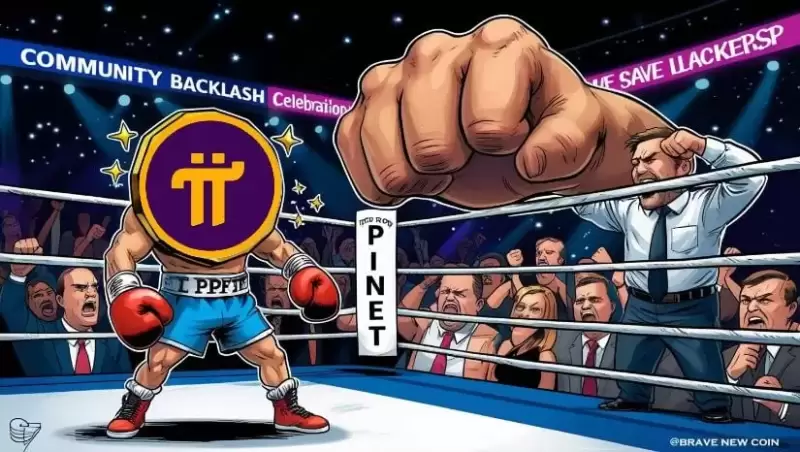 |
|
 |
|
 |
|
 |
|
 |
|
 |
|
 |
|
 |
|
 |
|
 |
|
 |
|
 |
|
 |
|
 |
|
 |
|
Cryptocurrency News Articles
The United States Prepares to Embrace the Digital Asset Industry
Jan 10, 2025 at 03:30 am

As the new administration settles into the White House, industry experts foresee a more welcoming approach towards digital assets in the United States. This shift is expected to bring greater regulatory clarity and an environment conducive to crypto innovation.
In an interview with BeInCrypto, Aaron Basi, head of product at IoTeX, highlighted that this new chapter in US crypto policy will serve as a catalyst for other nations to follow suit and embrace the industry.
The Crypto Industry Awaits Eagerly
As Donald Trump prepares for a second term in office, the president-elect has already taken several measures to reassure the industry that he will make the US “the crypto capital of the planet,” as he stated during his campaign trail.
Those measures included several key appointments. In early December, Trump named David Sacks as the White House’s “crypto czar.” A seasoned entrepreneur and investor with over two decades of experience in Silicon Valley, Sacks is expected to bring extensive experience to this role.
Trump also picked Paul Atkins, a cryptocurrency advocate, to replace Gary Gensler as Chair of the Securities and Exchange Commission (SEC). Crypto advocates celebrated the move, while the market reacted with immediate gains.
To lead the Council of Economic Advisors (CEA), Trump picked Stephen Miran, a former Treasury official during his first administration. Miran, a vocal advocate for cryptocurrency, has previously called for regulatory reforms in the United States.
“For years, the US was seen as a risky place for crypto businesses due to its patchy and often contradictory regulations. But as the regulatory environment improves, it’s going to send a clear message: the US is open for crypto innovation,” Aaron Basi told BeInCrypto.
As such, the crypto industry awaits this transition with high expectations.
What a Strategic Bitcoin Reserve Could Mean for the United States
The creation of a strategic Bitcoin reserve was among Trump’s promises during the electoral process.
“It will be the policy of my administration…to keep 100% of all the Bitcoin the US government currently holds or acquires into the future. This will serve in effect as the core of the strategic national bitcoin stockpile…It’s been taken away from you,” Trump said at the Bitcoin 2024 conference in Nashville.
Reserve supporters argue that Bitcoin, dubbed as “digital gold,” can be used to assert the United States’ financial supremacy in terms of ownership over the world’s strongest digital asset.
Proponents also maintain that Bitcoin can serve as a hedge against inflation and currency devaluation. On the other hand, critics caution against the risks associated with its volatility and regulatory challenges.
Once thought unattainable under Gary Gensler, the idea of a Bitcoin reserve under a Trump presidency isn’t as far-fetched. But it also raises concerns, said Basi.
“The impact on the market would be massive. First, it would drive up institutional adoption even further as companies and countries scramble to follow the US’s lead. The move would likely reduce Bitcoin’s availability on the open market, potentially leading to price surges due to increased scarcity. On the flip side, it could introduce concerns over government control of Bitcoin and how this aligns with its decentralized ethos. People might wonder: is Bitcoin truly “of the people” if it’s sitting in government vaults?” he said.
Certain lawmakers have already introduced legislation to create state-backed Bitcoin reserves. However, how quickly Trump can enact that change at the federal level remains uncertain.
Concerns over the Centralization of Bitcoin
Talks of creating a strategic Bitcoin reserve spark debates concerning Bitcoin’s inherent decentralized nature and whether or not it will remain compatible under government adoption.
“This is a tricky one. On one hand, increased institutional adoption is a good thing—it brings more stability, liquidity, and legitimacy to the market. On the other hand, it does raise concerns about centralization. When large institutions or governments hold massive amounts of Bitcoin, they gain a lot of influence over the market, which could go against Bitcoin’s decentralized ethos,” Basi said.
If a government adopts Bitcoin as a reserve asset, a series of scenarios could play out. Bitcoin’s value could become pegged to other existing assets, such as the US dollar or gold.
This potential interdependency could limit Bitcoin’s ability to function as a truly decentralized asset. Central authorities could also manipulate Bitcoin by controlling its supply and demand to achieve specific macroeconomic objectives.
What would remain unmanipulatable, however, is Bitcoin’s network itself.
“The protocol, mining distribution, and community governance are all designed to prevent any single entity from taking control. The real risk is more about perception and access. If too much Bitcoin is locked up by institutions, it could limit opportunities for retail investors and smaller players to participate meaningfully. The challenge will be finding a balance—welcoming institutional interest while ensuring that Bitcoin remains accessible to everyone,” Basi told BeInCrypto.
While institutional adoption brings stability and legitimacy to Bitcoin, it also raises concerns about centralization. This, in turn, highlights the need for a responsible
Disclaimer:info@kdj.com
The information provided is not trading advice. kdj.com does not assume any responsibility for any investments made based on the information provided in this article. Cryptocurrencies are highly volatile and it is highly recommended that you invest with caution after thorough research!
If you believe that the content used on this website infringes your copyright, please contact us immediately (info@kdj.com) and we will delete it promptly.
-

-

-

-

- New coin released by the Royal Australian Mint celebrates the Centenary of the Royal Australian Corps of Signals — but not all is as it seems.
- Apr 03, 2025 at 12:25 pm
- Beneath its golden facade, the $1 commemorative coin features a hidden message in code, just waiting to be cracked. By Tenzing Johnson.
-

-

-

-

- Coincodex's machine learning algorithm predicts Dogecoin (DOGE) price surge to $0.57
- Apr 03, 2025 at 12:15 pm
- The machine learning algorithm predicted that the Dogecoin price could surge $0.57 by April 28, later this month, representing a 229.55% gain for the foremost meme coin. This bullish prediction comes despite DOGE's decline, thanks to the broader crypto market crash, led by Bitcoin, which is attempting to test new lows.
-






























































